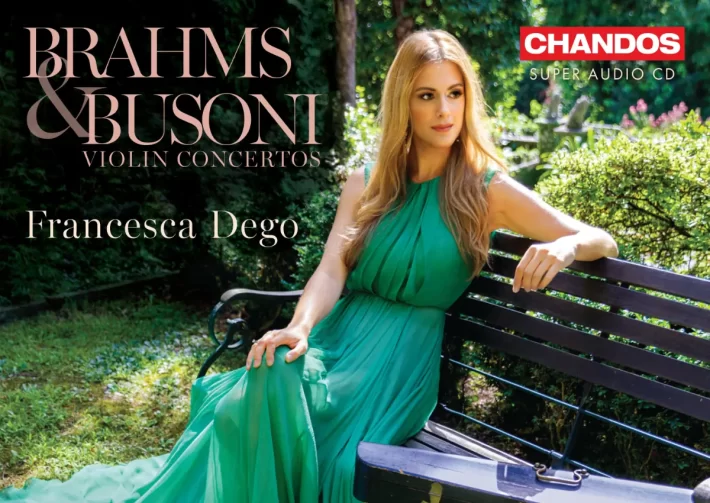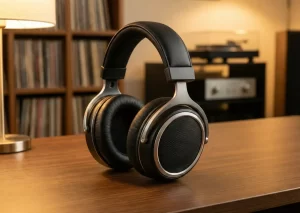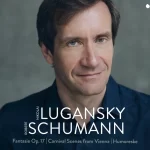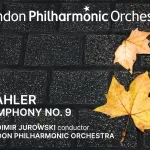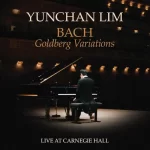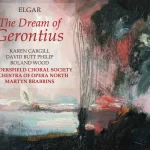The Violin Concertos of Busoni and Brahms are very much at opposite ends of the personality spectrum, so presenting equally convincing accounts of each is an ambitious task — but one Francesca Dego and the BBC Symphony take on in their new recording.
Though a stalwart of violin repertoire today, the Brahms Violin Concerto was not always so. Hans von Bülow once remarked that it was written more ‘against the violin’ than for it while Henry Wieniawski deemed it unplayable. These opinions may not be entirely unfounded, given its technical and even more daunting musical hurdles.
Dego has convincing command of technique. Where the issues lie for me, however, are in the interpretation. As is in many of the composer’s other works, a successful performance needs to tap into profundity, which I found this regretfully lacking. In the first movement, the BBC Symphony Orchestra’s consistently beautiful, soothing sound (under conductor Dalia Stasevska) is what prevents a salient enough distinction of character between the expansive major section and stormy D minor that strikes at 2’17”: here, the dotted rhythms are much too curt and matter-of-fact.
What I was hoping for was the persuasive austerity of the Perlman/Giulini recording (Warner). It’s never a good thing when the soloist’s entrance is easy to miss, which ends up being the case: Dego’s timbre, pale and somewhat lackluster, doesn’t command the stubborn attention the way Perlman’s does. To be fair, this could be partly attributed to the sound engineering, because the violin sounds far too integrated with, enveloped even, by the ensemble. I kept listening, hoping for a breakthrough but even the precious chance for poignancy in the high A (4’09”) is missed, as this peak feels more like a ghostly afterthought. Across the board, the gentler lyrical moments are to be savored for their delicate transparency, but there’s just not enough substance to satisfy.
Related Classical Music Reviews
- Review: Stravinsky – Violin Concerto, Orchestral Suites – James Ehnes, Sir Andrew Davis
- Review: Brahms – Double Concerto – Christian & Tanja Tetzlaff, Järvi
- Review: Ysaÿe – Six Sonatas for Violin Solo, Op. 27 – Hilary Hahn, Violin
Pablo de Sarasate had remarked that he wasn’t willing to stand with violin in hand while the oboe played “the only tune” in the Adagio (track 5). But even this melody feels buried in ill-managed balance. While some recordings favor salience over lyricism, one that manages to do both successfully is Viktoria Mullova’s with Claudio Abbado—the oboe here floats delightfully but not at the expense of ample expressiveness and flawless phrasing. When the violin takes over, I kept thinking that a theme this beautiful must only be sung, albeit figuratively, to the listener. However, Dego’s sound is more fragile than vocal with the culprit being the rather loose vibrato. Listen to Mullova’s tighter sound oscillations that help give the melody the right amount of presence.
While the Busoni is technically presented first, I only wish it had been the other way around as it is much better: the soloist and the orchestra are clearly more comfortable and musically uninhibited with this extroverted concerto. The Allegro Moderato (track 1) almost immediately puts the soloist in the spotlight with a lengthy show of sparking virtuosity. I hear little of the hesitation that had been so frustratingly present in the Brahms. Instead, bounding fluidity eventually leads to the martial section (3’32”): the intrepid timpani strikes and Dego’s excellent passagework and levitating staccatos fuel the energy and clarity.
The Quasi andante (track 2) meanders a bit compositionally but the performers manage to derive momentum in the sometimes unexpected twists and turns of character. With the introduction’s ominous rumble of the low strings and somber interchange with the brass, things don’t sound so optimistic; however, the arrival of the C major (and the way the performers give it a little extra stateliness) brings the ray of light that Dego lets blossom with her supple and resonant sound. The Finale can only derive its ebullience from nonstop efforts of the soloist, and she really carries the torch to the end. Her playing has a buzzing excitement and the orchestra’s bold presence only seeks to amplify the unfailing energy.
Martin Ennis’ liner notes are a helpful read, providing important context that reveals insightful connections between the two works. As far as the performances go, I must say I’m a bit surprised at the lopsidedness of interpretation. Preferred points of reference certainly remain for the Brahms, though I do wholeheartedly recommend the Busoni.

Brahms – Violin Concerto
Busoni – Violin Concerto
Francesca Dego – Violin
BBC Symphony Orchestra
Dalia Stasevska – Conductor
Chandos, SACD hybrid 095115533321
Included with an Apple Music subscription:
Latest Classical Music Posts
- Review: Schumann – Fantasie, Humoreske, Faschingsschwank aus Wien – Nikolai Lugansky
- Review: Mahler – Symphony No. 9 – London Philharmonic Orchestra, Vladimir Jurowski
- Review: “Piano Heroines” – Claire Huangci
- Review: Bach – Goldberg Variations – Yunchan Lim, Piano
- Review: Elgar – The Dream of Gerontius – Huddersfield Choral Society, Orchestra of Opera North, Martyn Brabbins
- Notable Classical Music Box Sets, February 2026
Read more classical music reviews or visit The Classic Review Amazon store

